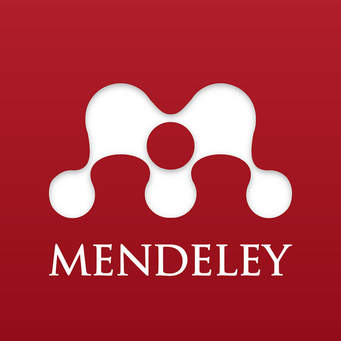Description of Macro Nutrition Intake, Natrium, Fiber, Physical Activity, and Blood Pressure in Hypertension Patients
Abstract
Background. Hypertension is a disease in which blood pressure is ≥ 140 mmHg for systolic and ≥ 90 mmHg for diastolic. Hypertension is often called the silent killer because sufferers cannot feel the symptoms. Excess sodium intake, less fiber, and inadequate physical activity can all contribute to hypertension. This study aims to determine the picture of sodium intake, fiber, and physical activity on the blood pressure of hypertensive patients at Sukarami Health Center in Palembang.
Research Methods. This kind of research uses an incidental sampling method and a cross-sectional research design and is descriptive. The sample in this study was 42 people, with a reserve of 10% to 46 people. Primary data was taken by measuring blood pressure, and interviews and secondary data were taken from the profile of the Sukarami Health Center in Palembang.
Research Result. The results showed that most of the energy intake was good at 52.2%, protein intake was mainly good at 47.8%, fat intake was primarily good at 45.7%, carbohydrate intake mainly was good at 56.5%, sodium intake was mostly more 67.3%, fiber intake mainly was 78.4% less, physical activity was primarily light 56.5%, and the hypertension level was mostly mild 69.6%.
Conclusion. Based on the condition of hypertensive patients, they still have more sodium intake, low fiber intake, and less physical activity. It is recommended that patients pay attention to sodium intake, fiber, and physical activity so that blood pressure becomes normal.
Keywords
Full Text:
PDFReferences
Abdurrachim, R, dkk. 2016. Correlation between Sodium Intake, Frequency and Duration of Physical Activity on Elderly Blood Pressure at Tresna Werdha Budi Sejahtera and Bina Laras Budi Luhur Social Institutions, Banjarbaru City, South Kalimantan. Journal of the Indonesian Nutrition Association. 39(1), 37–48.
Andria KM, 2013. Correlation between Exercise Behavior, Stress and Diet with Hypertension Levels in the Elderly at the Elderly Posyandu, Gebang Putih Village, Sukolilo District, Surabaya City. Jurnal Promkes. 1(2), 111-117.
Anisah. (2018). The Relationship between Physical Activity and Energy Intake of Women Rubber Farmers in Pajar Bulan-Tanjung Batu OI Village. Skripsi. Program Studi Ilmu Keperawatan STIKes Muhammadiyah Palembang.
Candra A, Wijayanti R, Nissa C. 2017. Relationship of Nutrient Intake and Anthropometric Index with Adolescent Blood Pressure. Journal of Nutrition and Health, 5(2).
Darmawan, H, dkk. 2018. Sodium Intake and Nutritional Status on the Level of Hypertension in Outpatients at Makassar City Hospital. Ilmu Media Gizi. 25(1), 11-17.
Palembang City Health Office. 2018. P2018 Health Profile. Palembang : Palembang City Health Office.
Fitri, dkk. 2018. Intake of Sodium and Potassium as Factors Causing Hypertension in Older Age. Aceh Nutrition Journal. 3(2), 158-163.
Harahap, RA, dkk. 2017. The Effect of Physical Activity on Hypertension in Early Adult Men (18-40 Tahun) In the Bromo Medan Community Health Center in 2017. Jurnal Muara Sains, Teknologi, Kedokteran, dan Ilmu Kesehatan. 1(2), 68-73.
Potassium and Physical Activity with the Incidence of Hypertension in Outpatients at RSUP DR. Wahidin Sudirohusodo. Makassar.
Kemenkes RI. 2014. Hipertensi. Jakarta : Central Information and Data.
Kemenkes RI. (2019). Hypertension The Silent Killer. Jakarta: Information Center and data.
Kurnia, W. (2013). The Effect of Fish Oil on Hypertensive Women's Blood Pressure. Journal of Nutrition College. 2(3), 364–372.
Mafaza, dkk. 2016. Analysis of the Relationship Between Abdominal Circumference, Fat Intake, and the Ratio of Calcium Magnesium Intake with Hypertension. Jurnal Media Gizi Indonesia. 11(2), 127-134.
Mulyati, H., Syam, A., Sirajuddin, S. 2011. The Relationship between Sodium Consumption Patterns
Ramarianda dan Kamsiah. 2015. Factors Associated with Blood Pressure in Hypertension Patients. Bengkulu : Jurnal Media Kesehatan. 8(1), 01-99.
Riskesdas. 2018. Basic Health Research. Jakarta : Balitbangkes.
Sari, DM. (2013).Correlation between fiber, sodium and physical activity intake on the incidence of obesity and hypertension in elementary school children. Artikel Penelitian. Semarang : Universitas Diponegoro.
Sari, YK dan Susanti ET. 2016. Relationship between Gender and Hypertension in the Elderly at the Nglegok Health Center, Blitar Regency. Blitar : Jurnal Ners dan Kebidanan. 3(3), 262-265.
Simamora, dkk. 2018. Relationship of Energy Intake, Macro, and Micronutrients with Blood Pressure in the Elderly. Jurnal Kesehatan Mayarakat. 6(1), 426-435.
Triyanto, (2014). Integrated Nursing Services for Hypertension Sufferers. Yogyakarta : Graha Ilmu.
Wahyuni & Eksanoto. (2013). Correlation between Education Level and Gender with Hypertension Incidence in Jagalan Village in the Work Area of PucangSawit Health Center, Surakarta. Jurnal Ilmu Keperawatan Indonesia. 1(1),112–121.
WHO, 2011. 1 miliar orang di dunia alami hipertensi.
Wijaya, dkk, 2013. KMB I (Medical Surgical Nursing (Adult Nursing)).
Yuria, dkk. 2019. Correlation between Intake of Fat, Fiber and Waist Hip Circumference Ratio with Blood Pressure of Hypertension Patients at Gondokusuman I Health Center Yogyakarta. Ilmu Gizi Indonesia. 2(2), 115- 124.
Refbacks
- There are currently no refbacks.
Copyright (c) 2022 Jurnal Gizi Prima (Prime Nutrition Journal)

This work is licensed under a Creative Commons Attribution-ShareAlike 4.0 International License.
Address:
Jurnal Gizi Prima (Prime Nutrition Journal) 2656-2480 Kampus A Poltekkes Kemenkes Mataram, Jurusan Gizi, Jl. Praburangkasari Dasan Cermen Sandubaya Mataram.





